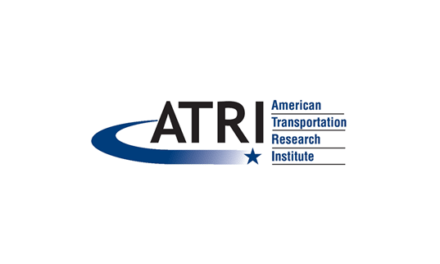President Joe Biden yesterday unveiled a $2.3 trillion infrastructure plan that among other things aims to upgrade the nation’s highways, bridges, transit systems and ports and speed the adoption of electric vehicles to move the country away from fossil fuels.
The “American Jobs Plan,” which faces an uphill fight in the divided Senate, includes $621 billion for modernizing 20,000 miles of highways, building 500,000 EV charging stations and investing in public transit and other infrastructure.
To advance EVs, the plan proposes a “$174 billion investment to win the EV market.” Part of the funds would go to automakers to spur domestic supply chains from raw materials to parts, retool factories to compete globally and support American workers to make batteries and EVs. Also on tap: electrifying the federal fleet, including the U.S. Postal Service.
Regarding EV charging infrastructure, the plan seeks to create grant and incentive programs for both the private sector and state and local governments.
As a sweetener for consumers, the plan would provide point-of-sale rebates and tax incentives to buy EVs made in America.
Speaking in Pittsburgh, Biden called the massive plan “a once-in-a-generation investment in America unlike anything we’ve seen or done since we built the interstate highway system and the space race decades ago. In fact, it’s the largest American jobs investment since World War II. It will create millions of jobs, good-paying jobs.”
Biden’s plan would be financed by raising corporate taxes to 28% from 21% and increasing taxes on companies’ foreign earnings.
The White House said, “the plan includes $20 billion to improve road safety for all users, including increases to existing safety programs and a new Safe Streets for All program to fund state and local ‘vision zero’ plans and other improvements to reduce crashes and fatalities, especially for cyclists and pedestrians.”
Biden set the goal of eliminating power grid emissions by 2035 by requiring that electricity come from low-carbon sources.
The infrastructure plan includes $16 billion for “union jobs plugging oil and gas wells and restoring and reclaiming abandoned coal, hardrock, and uranium mines,” the White House said. To remediate and redevelop Brownfield and Superfund sites, the plan earmarks $5 billion for the effort.
There’s also $15 billion to invest in demonstration projects for Biden’s climate research and development priorities, “including utility-scale energy storage, carbon capture and storage, hydrogen, advanced nuclear, rare earth element separations, floating offshore wind, biofuel/bioproducts, quantum computing, and electric vehicles, as well as strengthening U.S. technological leadership in these areas in global markets.”
Industry Reactions
There were a range of industry reactions to the Biden Administration’s proposal that followed anticipated lines.
American Petroleum Institute noted “modern pipelines” were not sufficiently addressed as part of the infrastructure proposal. The primary point of contention involved the proposed new taxes on the petroleum industry. “Targeting specific industries with new taxes would only undermine the nation’s economic recovery and jeopardize good-paying jobs, including union jobs,” said API’s Senior Vice President for Policy, Economic and Regulatory Affairs Frank Macchiarola. “It’s important to note that our industry receives no special tax treatment, and we will continue to advocate for a tax code that supports a level playing field for all economic sectors along with policies that sustain and grow the billions of dollars in government revenue that we help generate.”
NACS, the trade association representing the convenience and retail fueling sector, has advocated that convenience and fuel retailers have the same access to grants and incentives to build out EV charging infrastructure as any other business sector and that any infrastructure proposal should promote a competitive market and remove hurdles to private sector investment. NACS believes that convenience and fuel retailers, which operate more than 122,000 fueling locations in the U.S., should have the option to sell any legal source of transportation energy.
Growth Energy provided an ethanol perspective and noted the emphasis on “no carbon” versus “low carbon” and the impact on biofuels such as ethanol. “It’s disappointing that President Biden put forth a robust, $2 trillion infrastructure plan that overlooks the urgent need to expand access to low carbon biofuels, like plant-based ethanol,” said Growth Energy CEO Emily Skor. “The president campaigned on a platform of using ‘every tool at his disposal’ to ‘promote and advance renewable energy, ethanol and other biofuels’. The details of the American Jobs Plan released today assuredly missed an opportunity to meet these promises.”
NATSO, the trade association representing the nation’s truckstops and travel plazas, was pleased to see the proposal did not incorporate tolling existing interstates and commercializing rest areas. As with NACS, EV charging was the main issue to watch moving forward. “Any effort to develop a nationwide network of charging stations will only succeed if there is a clear, unambiguous policy framework that harnesses the core competencies of the utility and retail fuel sectors,” said NATSO President and CEO Lisa Mullings.
American Trucking Associations’ objections to the proposal rested on the funding provisions. “We do not believe the administration’s funding proposal is politically tenable nor a reliable long-term solution to the shortfall facing the Highway Trust Fund,” said ATA President and CEO Chris Spear. “We also disagree with certain provisions—especially those related to labor—that are counterproductive to economic growth and will only serve as political poison pills. However, the president’s broader plan is an important marker as Congress begins work on a surface transportation reauthorization bill. ATA recognizes this is the beginning of the legislative process, not the end.”









